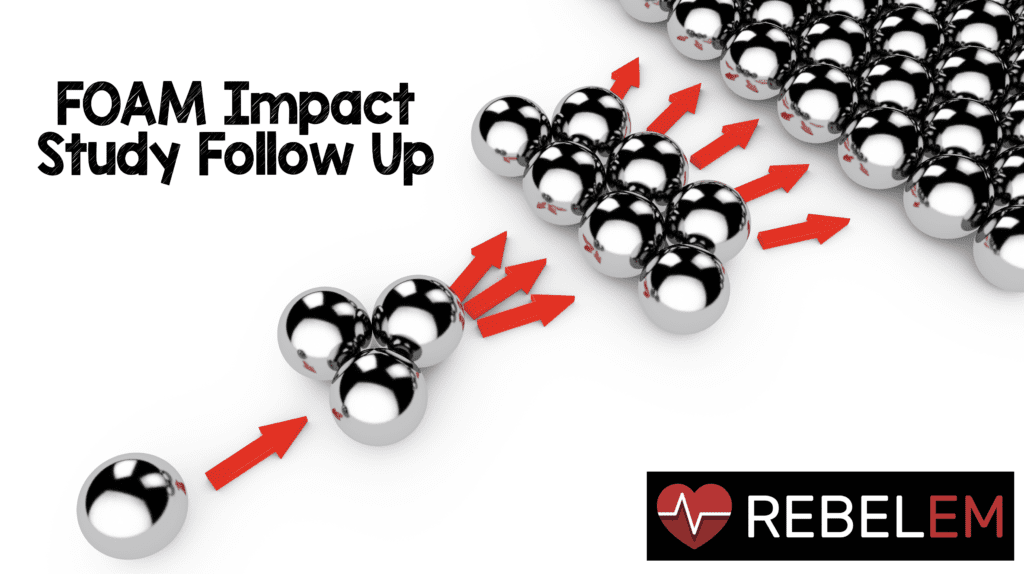
 Online educational resources, social media, and asynchronous education increasingly dominate innovation and continuing medical education for practicing emergency physicians. The “Free Open-Access Medical Education” (FOAM) movement has utilized the power of global connectivity to drive narrowing of the knowledge translation window, however critics have urged caution and warned of error, as many of these resources lack peer review or quality control [1]. REBEL EM is an online educational resource widely used throughout the FOAM community, garnering an average of 3,000 – 30,000 views/engagements per educational post, and satisfying all quality indicators that have been previously identified as markers of reliability and usability for digital scholarship [2]. To this end, we at REBEL EM are conducting a survey looking at rates of certain medication usage in the treatment of renal colic. This is the follow up survey after the publication of the LIDOKET trial.
Online educational resources, social media, and asynchronous education increasingly dominate innovation and continuing medical education for practicing emergency physicians. The “Free Open-Access Medical Education” (FOAM) movement has utilized the power of global connectivity to drive narrowing of the knowledge translation window, however critics have urged caution and warned of error, as many of these resources lack peer review or quality control [1]. REBEL EM is an online educational resource widely used throughout the FOAM community, garnering an average of 3,000 – 30,000 views/engagements per educational post, and satisfying all quality indicators that have been previously identified as markers of reliability and usability for digital scholarship [2]. To this end, we at REBEL EM are conducting a survey looking at rates of certain medication usage in the treatment of renal colic. This is the follow up survey after the publication of the LIDOKET trial.
FOAM Impact Study Follow Up:
Survey Link
References:
- Thoma B, Chan T, Desouza N, Lin M. Implementing peer review at an emergency medicine blog: bridging the gap between educators and clinical experts. Can J Emerg Med. 2015. PMID: 25927262
- Lin M, Thoma B, Trueger NS, Ankel F, Sherbino J, Chan T. Quality indicators for blogs and podcasts used in medical education: modified Delphi consensus recommendations by an international cohort of health professions educators. Postgrad Med J. 2015. PMID: 26275428
Post Peer Reviewed By: Rick Pescatore, DO (Twitter: @Rick_Pescatore)
The post FOAM Impact Study Follow Up appeared first on REBEL EM - Emergency Medicine Blog.
